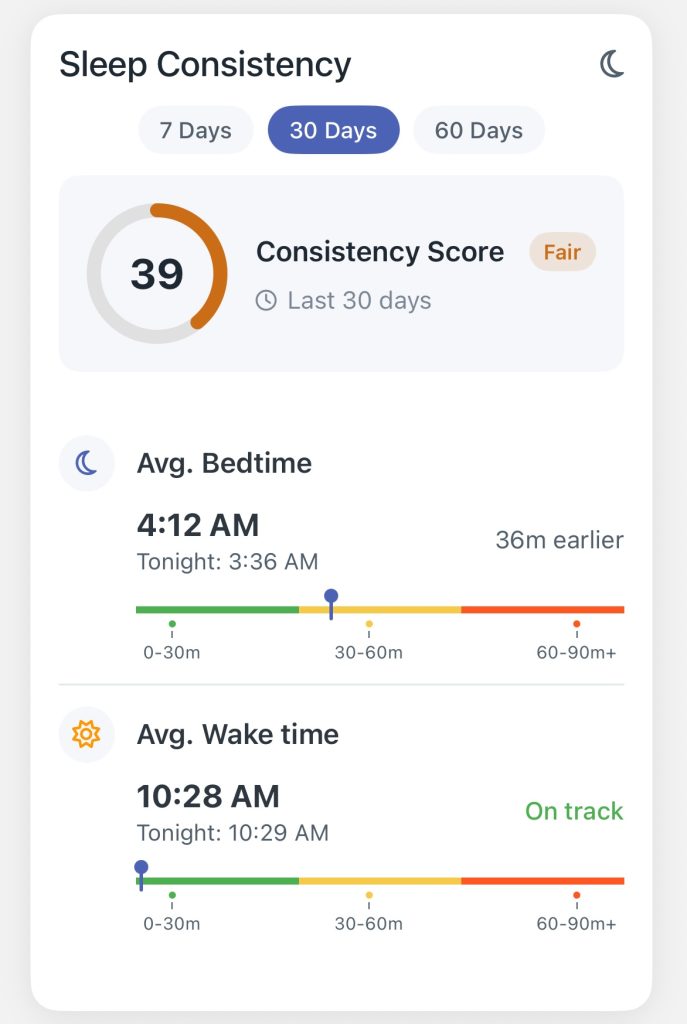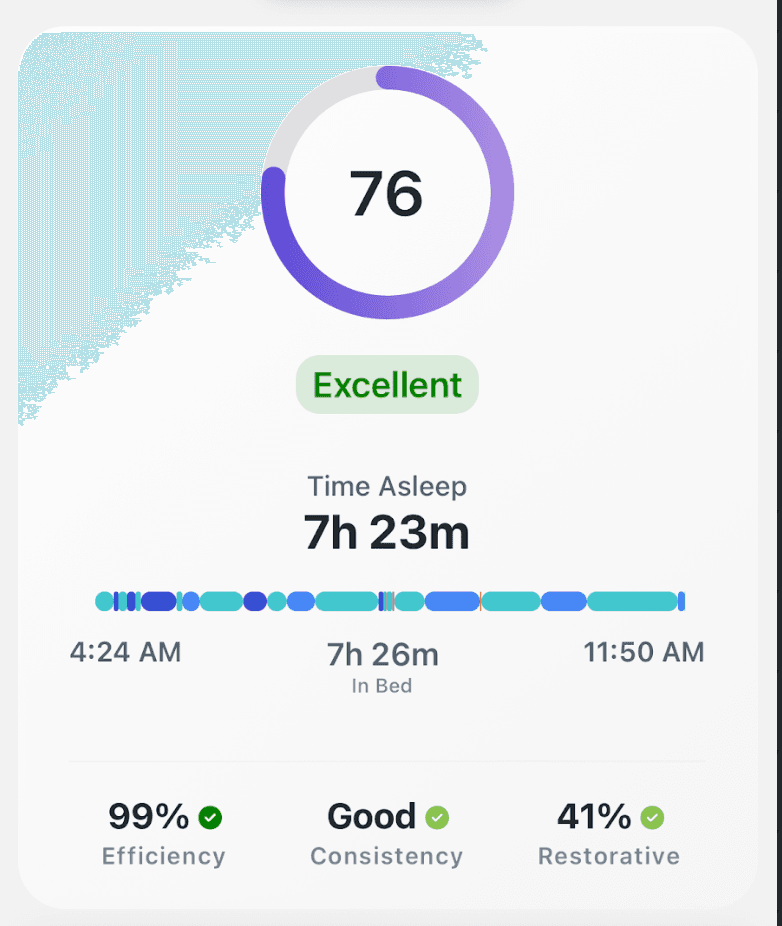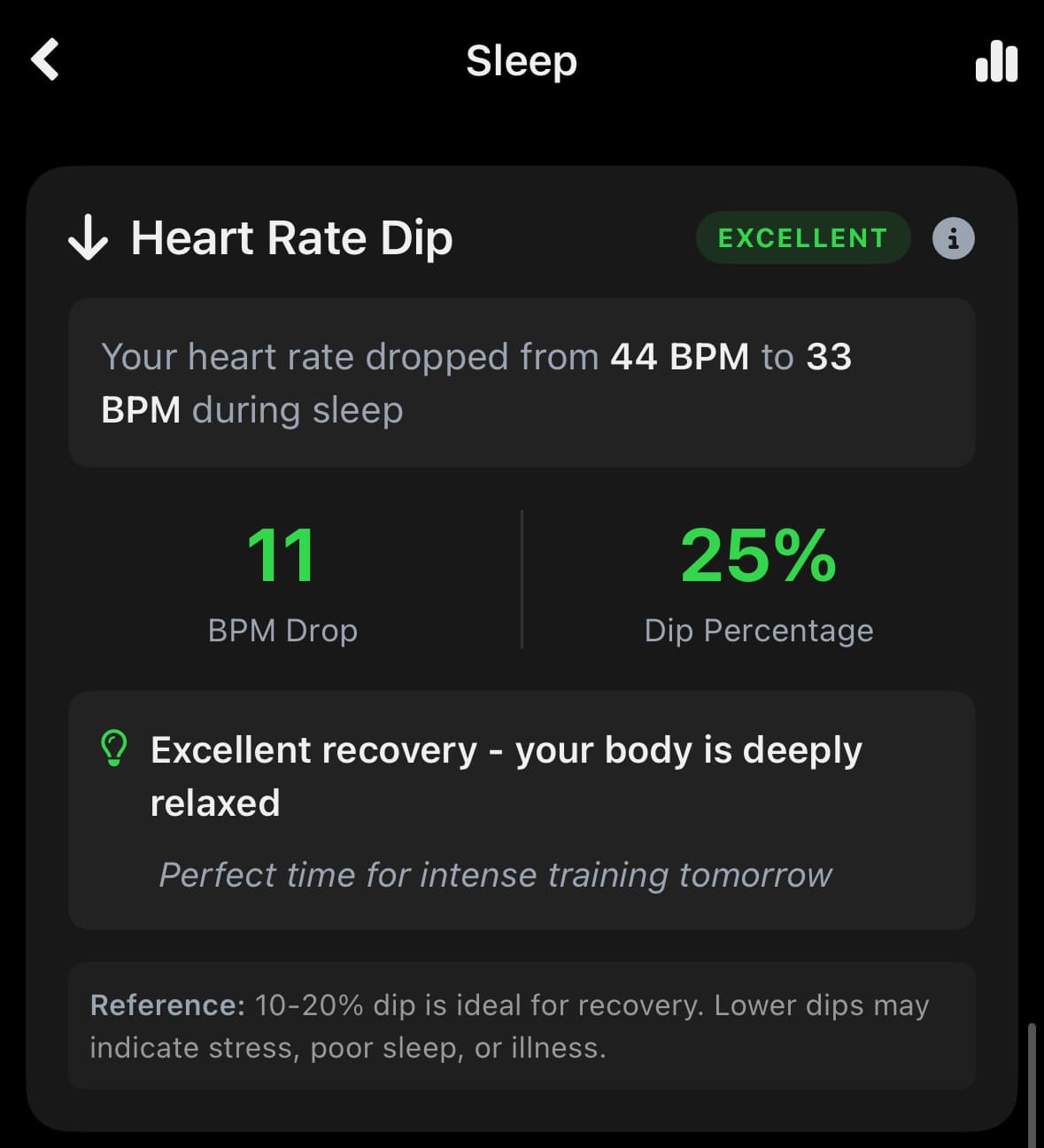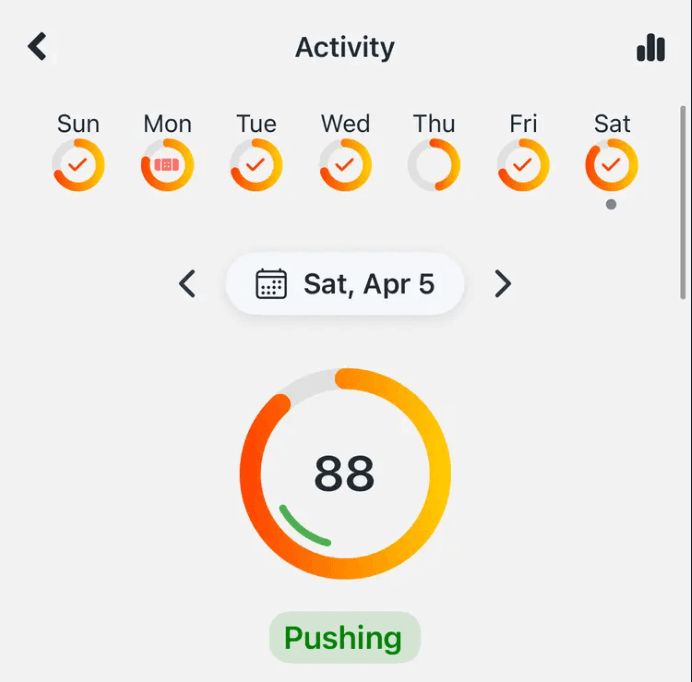Sleep Consistency and Why It Matters
Sleep consistency refers to maintaining regular sleep and wake times throughout the week—including weekends. While many people focus on sleep duration (getting those recommended 7-9 hours), emerging research shows that the regularity of your sleep schedule may be equally, if not more, important for your overall health and wellbeing.
According to the National Sleep Foundation, sleep consistency means going to bed and waking up at the same time every day, which helps maintain your body’s internal clock or circadian rhythm. Your circadian rhythm influences countless biological processes, from hormone release to body temperature regulation and metabolism.
Zolt tracks Sleep Consistency automatically!

The Science Behind Sleep Consistency
Our bodies operate on a 24-hour cycle known as the circadian rhythm, which is regulated by a “master clock” in our brain. Stanford researchers note that this master clock consists of about 20,000 nerves in the hypothalamus, also known as the suprachiasmatic nucleus (SCN). This biological timekeeper is highly sensitive to light and helps coordinate all other circadian rhythms throughout the body.
When you maintain consistent sleep and wake times, you reinforce these natural rhythms, allowing your body to optimize various biological functions. The Sleep Foundation explains that circadian rhythms help living things respond effectively to environmental changes, conserve energy, and allow for growth and healing.
Why Sleep Consistency > Duration
Recent research has revealed a surprising finding: sleep consistency may actually be more crucial than sleep duration for overall health outcomes.
A landmark study published in the journal NPJ Digital Medicine examined the sleep habits of over 2,000 first-year medical residents and found that variability in sleep habits significantly affected mood and depression, regardless of how many total hours they slept. As reported by The Washington Post, the lead researcher concluded that “keeping a regular sleep schedule is as important as, if not more important than, having enough sleep time for one’s mental health.”
Even more compelling, a 2023 study analyzed in the journal Sleep found that sleep regularity is a stronger predictor of mortality risk than sleep duration. Oxford Academic researchers report that participants with greater sleep consistency had lower risks of all-cause mortality and cause-specific deaths, including cardiovascular disease and cancer.
The Health Benefits of Consistent Sleep
Maintaining a regular sleep schedule offers numerous health benefits:
Improved Mental Health
According to Stanford University research, disruptions to circadian rhythms are associated with increased feelings of depression and anxiety. Conversely, consistent sleep patterns help regulate the neural systems responsible for mood, including limbic brain regions and neurotransmitters like dopamine and serotonin.
Better Cardiovascular Health
A systematic review published in the Canadian Science Publishing journal found that irregular sleep patterns were associated with adverse cardiovascular outcomes. The study, which included over 90,000 participants across 14 countries, concluded that regularity in sleep with consistent bedtimes and wake-up times is favorably associated with heart health.
Enhanced Metabolic Function
Irregular sleep-wake cycles can disrupt metabolism and increase the risk of obesity and type 2 diabetes. The Cleveland Clinic notes that circadian rhythm disruptions can lead to long-term health conditions affecting the metabolic, gastrointestinal, and endocrine systems.
Improved Cognitive Performance
A study published in npj Science of Learning found that sleep duration and consistency for the month and week before a test correlated with better academic performance in college students. Sleep measures accounted for nearly 25% of the variance in grades, highlighting the important role of consistent sleep in cognitive function.
Enhanced Immune Function
The National Center for Biotechnology Information reports that sleep deprivation reduces the effectiveness of the immune system, making the body more susceptible to infections and diminishing the response to vaccinations. Maintaining consistent sleep patterns helps support immune function.
Signs of Inconsistent Sleep Consistency Patterns
You might have inconsistent sleep patterns if you experience:
- Different bedtimes and wake times throughout the week
- Significant differences between weekday and weekend sleep schedules (often called “social jetlag”)
- Difficulty falling asleep at your intended bedtime
- Feeling tired at inconsistent times throughout the day
- Needing to “catch up” on sleep during days off
How to Establish a Consistent Sleep Schedule
Improving your sleep consistency is achievable with the right strategies:
Set Fixed Sleep and Wake Times
The American Academy of Sleep Medicine recommends keeping a consistent sleep schedule by getting up at the same time every day, even on weekends or during vacations. Set a bedtime that allows for 7-8 hours of sleep, and stick to it.
Create a Relaxing Bedtime Routine
The National Sleep Foundation suggests developing a wind-down routine to signal to your body that it’s time for sleep. This could include reading a book, meditating, journaling, or listening to calming music for 30-60 minutes before bed.
Optimize Your Sleep Environment
The Sleep Foundation advises creating a sleep-conducive environment that is quiet, dark, and cool. Remove electronic devices that emit blue light, which can interfere with your natural melatonin production.
Manage Light Exposure
The Sleep Foundation explains that actively managing your exposure to light can help regulate your circadian rhythm. Get plenty of natural light during the day, especially in the morning, and reduce light exposure in the evening.
Be Consistent with Meals and Exercise
According to Healthline, regular exercise and consistent meal times can help reinforce your body’s natural rhythms. Avoid large meals, caffeine, and alcohol close to bedtime.
Make Gradual Adjustments
If you need to shift your sleep schedule, The Sleep Foundation recommends making gradual adjustments of 15-30 minutes earlier or later each day until you reach your target schedule. Dramatic changes can disrupt your circadian rhythm.
Use Technology Wisely
Consider using a sleep tracking app like Zolt to monitor your sleep consistency over time. Set bedtime reminders to alert you when it’s time to start your wind-down routine and wake-up alarms to maintain consistency.
What About Weekends?
Many people wonder if they should maintain the same sleep schedule on weekends. The National Sleep Foundation consensus panel concluded that when sleep deficiency has accumulated during workdays, extending sleep on non-work days (“catch-up” sleep) for up to 1-2 hours can be beneficial.
However, for optimal sleep health, try to limit the difference between your weekday and weekend schedules to no more than one hour. This compromise allows for some flexibility while still maintaining relative consistency in your sleep-wake cycle.
When to Seek Professional Help
If you consistently struggle to maintain a regular sleep schedule despite your best efforts, it may be worth consulting a healthcare provider. The Cleveland Clinic advises speaking with a sleep medicine specialist or behavioral sleep medicine psychologist if you suspect you have a circadian rhythm disorder.
Common circadian rhythm disorders include:
- Delayed sleep phase disorder (difficulty falling asleep until late at night)
- Advanced sleep phase disorder (falling asleep too early and waking up very early)
- Irregular sleep-wake rhythm disorder (no consistent pattern of sleep and wakefulness)
- Shift work sleep disorder (sleep problems related to working night shifts)
Conclusion
The evidence is clear: sleep consistency matters significantly for your overall health and wellbeing. While sleep duration remains important, maintaining regular sleep and wake times may have an even greater impact on your physical health, mental wellbeing, and cognitive performance.
By understanding the science behind your circadian rhythm and implementing strategies to establish a consistent sleep schedule, you can optimize your body’s natural processes and potentially reduce your risk of numerous health conditions. Use Zolt to track your sleep consistency and make informed adjustments to your routine for better health outcomes.
Remember, small steps toward greater sleep consistency can yield significant benefits. Even if perfect consistency isn’t always possible, minimizing irregularity in your sleep schedule can help you feel more energetic, focused, and healthy.


